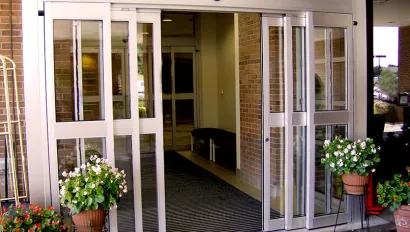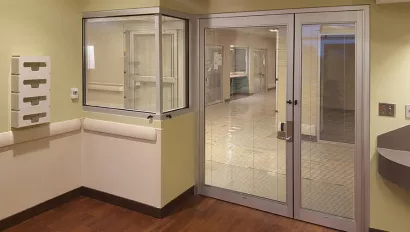Although all doors have the same purpose, the type of structure the doors will be installed in is critical in determining what kind of door should be selected. At the most basic level, there is a difference in the construction of doors intended for commercial applications and doors intended for residential applications. So how do they differ? We’ll break it down here.
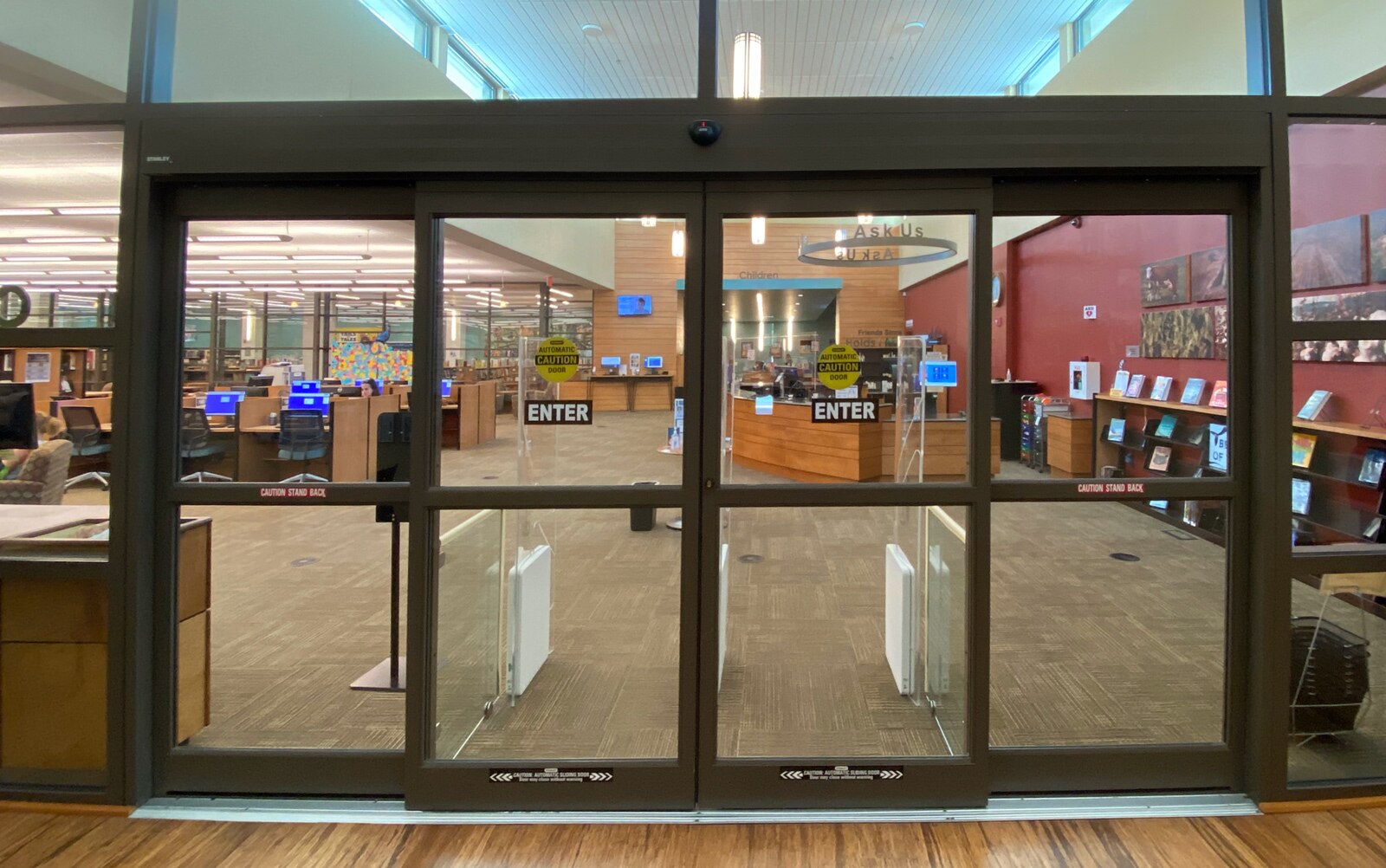
Commercial Door Durability
Doors designed and manufactured for use in commercial and industrial settings are different from residential doors in several key ways. First and foremost, commercial doors are built to withstand heavy use. Doors installed in commercial settings must be manufactured to operate properly for millions more use cycles than residential doors. Because of this need, the materials used to construct these doors must be far more robust. This is true whether you are talking about commercial wood doors, metal, glass, or another material. It is also true regardless of the location in the structure: interior, exterior, side, back, and commercial front doors must all be built to last.
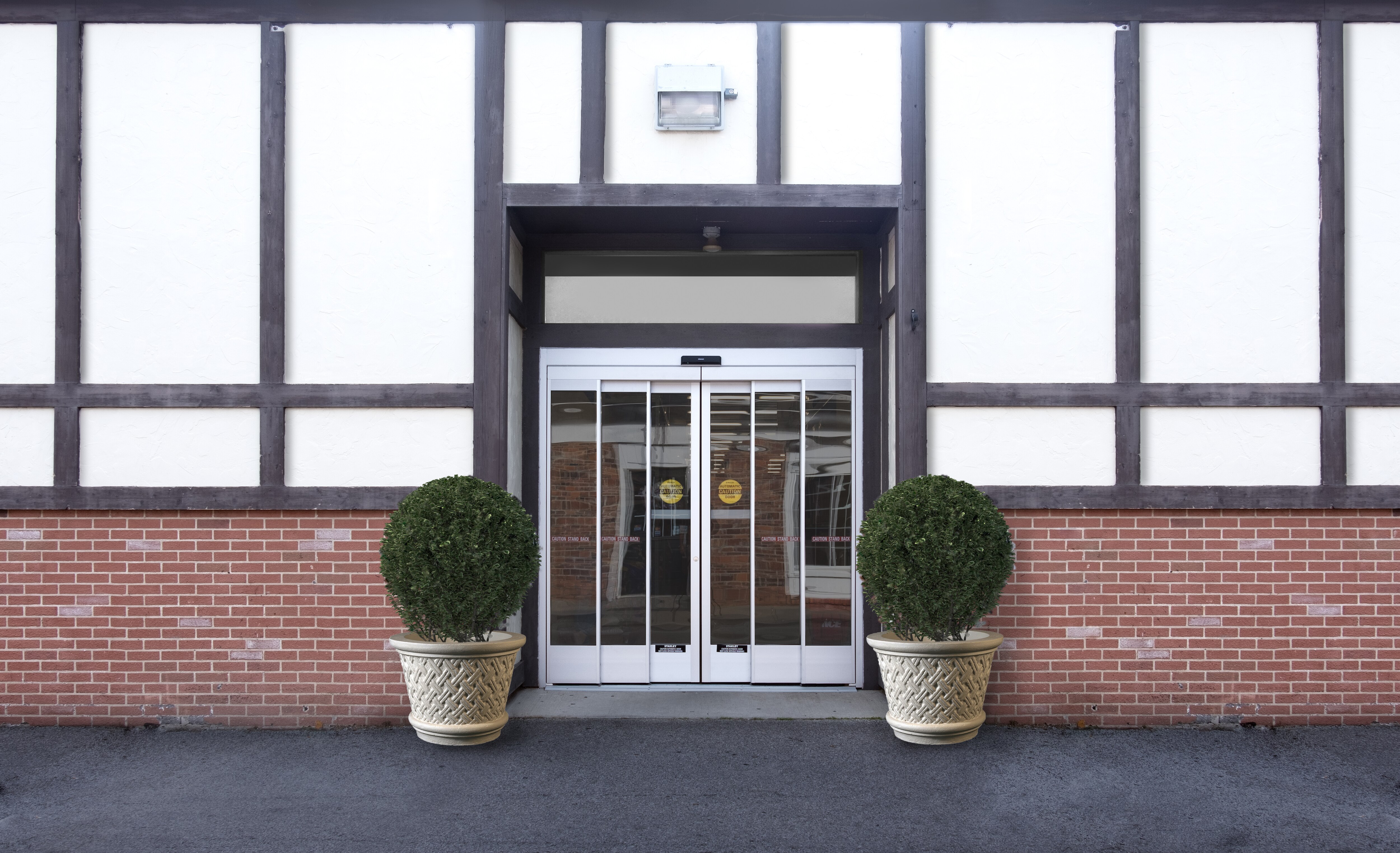
Other Differentiators
In addition to durability, here are some other key characteristics and features of commercial doors which can differ from residential doors.
Security:
More often than residential doors, commercial doors frequently have enhanced security features such as access control systems and higher-grade locks.
Fire Resistance:
Commercial fire-rated door codes may require these doors to withstand fire for a specified period for additional safety.
Sound Insulation:
Although residential examples can be found, some commercial doors can provide additional sound insulation which is useful particularly in doors placed in areas adjoining industrial and manufacturing operations or for privacy in commercial applications.
Aesthetics:
Aesthetics are important in residential applications, of course, and in commercial environments they are also a key decision made by the architect. Commercial sliding doors, for example, are often chosen as an easy entrance/egress that complements the rest of the building design.

Accessibility
Among other things, the Americans with Disabilities Act (ADA) was established to provide equal opportunity of access for everyone. This act does not apply to single family residences and many multi-family residences either. But public buildings must provide entrances featuring commercial doors and hardware that is usable by everyone oftentimes featuring wider openings, low thresholds, and low- or full-energy activation.
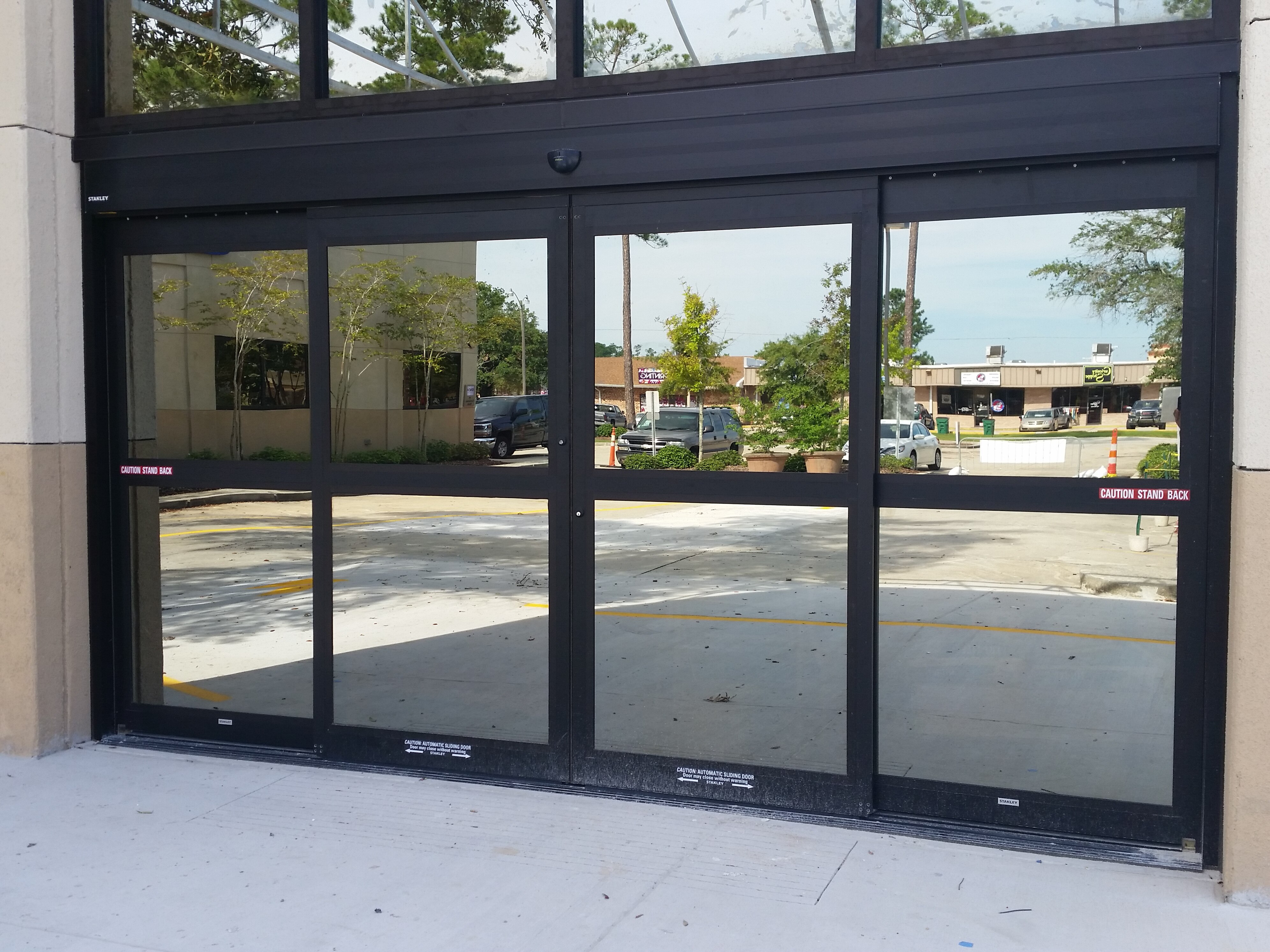
Automatic Sliding Doors:
Ideal for retail, healthcare, and transportation settings, automatic sliding doors provide convenient and accessible entry.
Aluminum and Glass Doors:
Found in modern office buildings and retail spaces, they provide sleek and inviting style options.
Hollow Metal Doors:
Durable and fire-rated, hollow metal doors are suitable for various commercial applications, including offices, schools, and retail spaces.
Wooden Doors:
Upscale commercial spaces like hotels and restaurants often select wooden doors for a more traditional and aesthetically pleasing look.
Fiberglass Doors:
These are durable and resistant to environmental factors making them suitable for interiors in buildings with specific requirements.
Rolling Steel Doors:
Perfect for warehouses, garages, and industrial facilities, these doors offer security and durability.
Fire-Rated Doors:
These doors are crucial in commercial settings to prevent the spread of fire. They are commonly found in hotels, hospitals, offices, and other buildings.
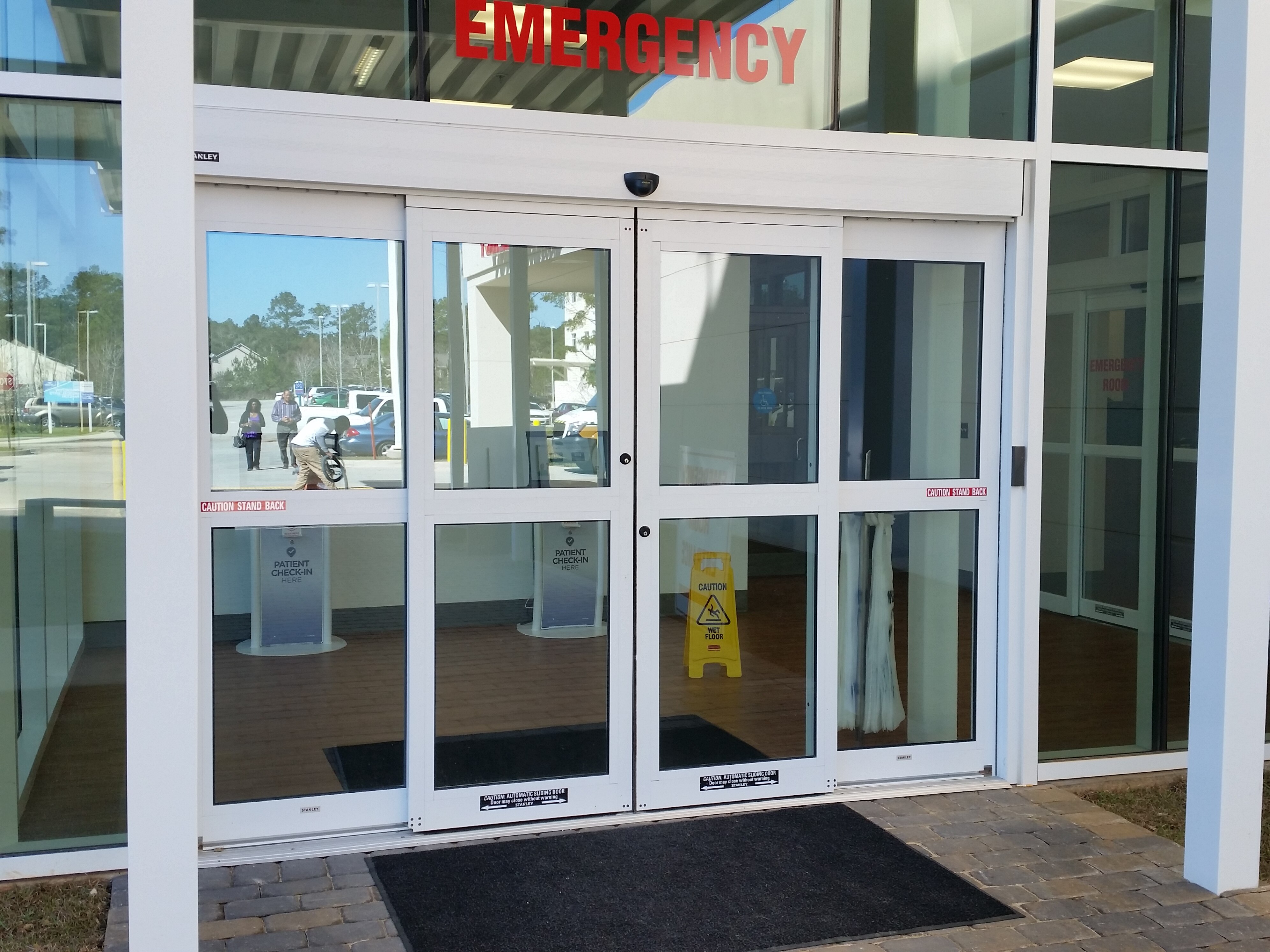
Choosing the Right Commercial Door
We’re always available to help you make the right decision when it comes to selecting doors for your project from our product lines and we understand the pressure on Architects and Specifiers to prepare high quality construction documentation in a limited amount of time.
That is why we offer a full range of specification writing and supporting services on a local level. Our Architectural Specification Consultants are experts in the door industry, and are available for pre-bid project consultation, design development and specification questions.
Specification Services
Click here to learn more about our specification services.



